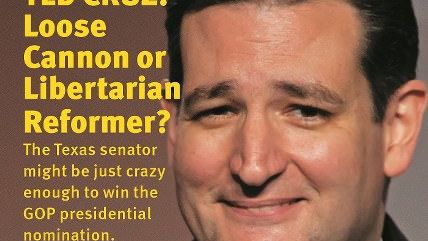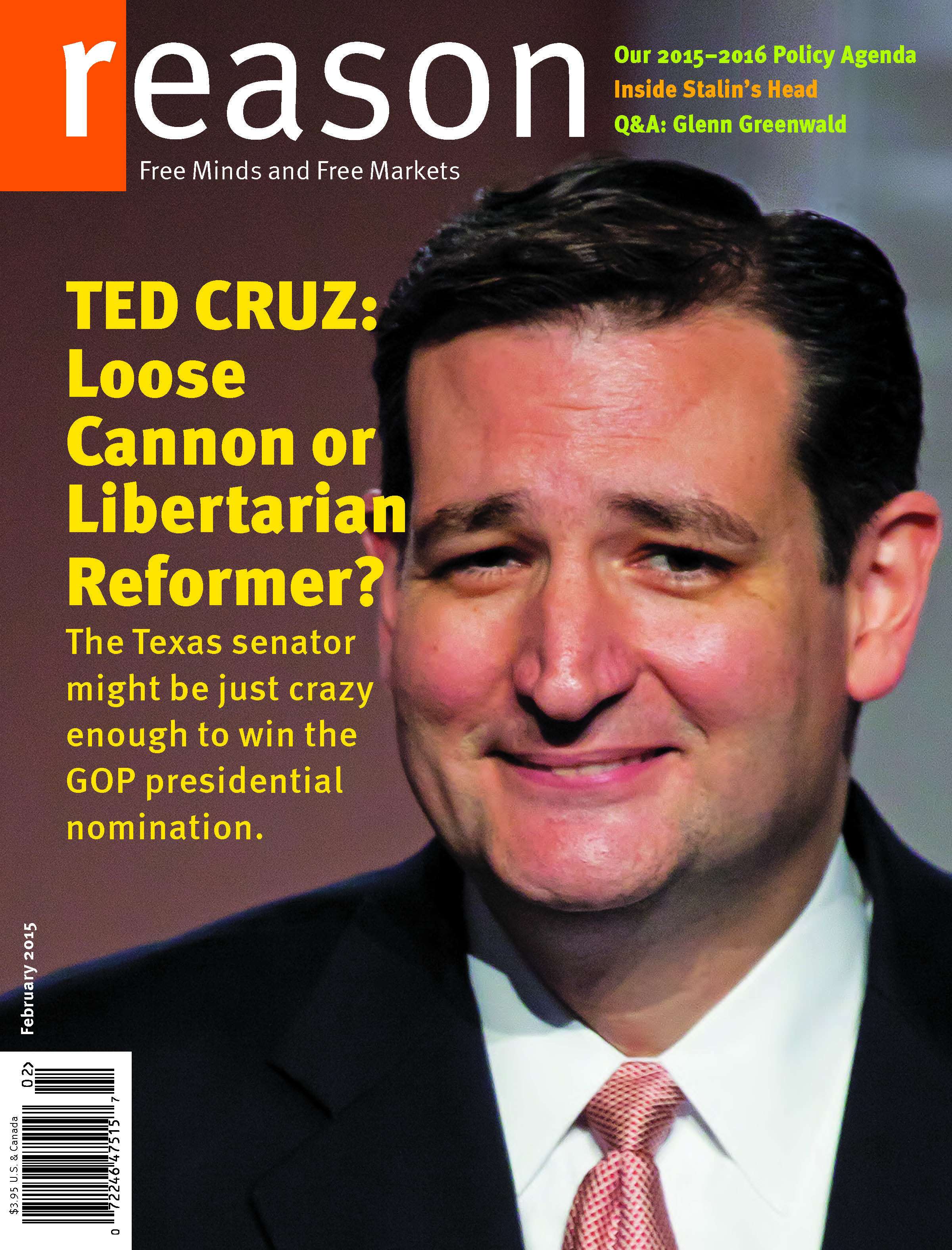Sen. Ted Cruz Embarks on Doomed Legislative Campaign Against Federal Gay Marriage Recognition
He can't win this fight, but he could win primary votes.


Overall, federalism has been good for the gay marriage recognition movement. It may not look like it, given all the states where voters actually approved bans. But the possibility of federal gay marriage recognition would not have even happened had some other states chosen otherwise and begun recognizing gay marriage. The world did not end. The world is nowhere near ending. More and more Americans have come to realize that letting gay people marry doesn't actually cause any problems.
I wrote back in 2012 that federalism isn't necessarily the enemy of gay marriage. Conor Friedersdorf recently wrote his own take over at The Atlantic. Sen. Ted Cruz (R-Texas), a likely contender for the 2016 Republican presidential nomination, has the idea, as an opponent of gay marriage, that federalism can be harnessed to hold back the tide. He is reintroducing the State Marriage Defense Act, which would require the federal government to recognize each state's definition of marriage and not overrule them with its own guidelines. From his announcement:
"Even though the Supreme Court made clear in United States v. Windsor that the federal government should defer to state 'choices about who may be married,' the Obama Administration has disregarded state marriage laws enacted by democratically-elected legislatures to uphold traditional marriage," said Sen. Cruz. "I support traditional marriage and we should reject attempts by the Obama Administration to force same-sex marriage on all 50 states. The State Marriage Defense Act helps safeguard the ability of states to preserve traditional marriage for their citizens."
In Windsor, the Supreme Court improperly struck down a federal statute, Section 3 of the Defense of Marriage Act (DOMA), that defined marriage for purposes of federal law as the union of one man and one woman. At the same time, the Supreme Court reaffirmed the states' longstanding authority to define marriage.
Unfortunately, the Obama Administration has overruled that state authority, as various federal agencies are recognizing same-sex marriages in states that only recognize traditional marriage, creating what the Windsor decision condemned: "two contradictory marriage regimes in the same state."
The State Marriage Defense Act remedies this problem by requiring that the federal government defer to the law of the state where a couple resides to determine whether the couple is married for purposes of federal law.
So if a state refuses to recognize same-sex marriages, then the federal government couldn't, for example, extend benefits or allow for tax breaks to gay couples in that state that are based on marital status, even if they were legally married in another state.
It's not really worth analyzing the potential impacts of such a bill because it's most certainly doomed, even in the new Republican Congress. Could something like this get a veto-proof majority, even if it actually passed? I doubt it. Even if Cruz attempted to attach it to other legislation, there would likely be way too many howls about it.
More importantly, the Supreme Court is taking up gay marriage this summer, and all signs indicate they're about to make this all moot. The Supreme Court will take up the question of whether bans on gay marriage recognition are violations of the 14th Amendment. There are some pretty strong indications that the court is going to rule in favor of the gay couples, which would mandate gay marriage recognition in all states, thus making Cruz's effort pointless.
Cruz is aware of this possibility as well, which is why his statement ended with an announcement that later this year (after the Supreme Court ruling, one imagines) he will "introduce a constitutional amendment to further protect marriage and prevent judicial activism" by declaring that marriage is a policy question for the state legislatures. Such an amendment will go absolutely nowhere, but can be a concrete proposal he can bring up to appeal to Republican Party's religious conservatives during the primaries.
Read more analysis of Cruz's positions and background from our February cover story here.


Show Comments (330)